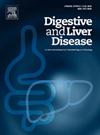Patient with alcohol-related liver disease: a multidimensional analysis
IF 3.8
3区 医学
Q1 GASTROENTEROLOGY & HEPATOLOGY
引用次数: 0
Abstract
Background
Alcohol-related liver disease (ARLD) is liver damage caused by prolonged alcohol intake. It represents the second indication for liver transplantation in Italy, almost 20% of cases. Studies indicate that psychological-psychiatric and psychosocial variables influence the onset of the disease and the risk of relapse or alcoholic relapse post-transplant.The aim of the study is to evaluate the clinical consequences of alcohol use in liver transplant patients and the impact on the graft, analyze the rate of relapse and relapse and identify psychological-psychiatric risk and protection factors in transplant patients and transplant recipients, in terms of therapeutic adherence, number of post-transplant hospitalizations and onset of significant psychiatric events.
Methods
The study consists of two phases: retrospective and prospective. The retrospective phaseexamined clinical, laboratory, psychological-psychiatric and psychosocial data of patientsundergoing liver transplantation for ARLD between 2017 and 2022. The prospective,observational, spontaneous and monocentric phase involves the enrollment of patients with ARLD or etiological components of exotoxicity, afferent to the liver transplant pathway with a 5-year follow-up.
Results
The sample of the retrospective phase includes 208 patients, mainly men (81.3%) with a median age of 61 years. The diagnosis of liver cirrhosis, of exclusively exotoxic origin, was found in 62.5% of cases, while 24% of the sample was associated with infections by hepatotropic viruses (HCV, HBV, HIV), dysmetabolic and autoimmune causes. The median of the pre-surgery MELD is 19. 9.1% of the sample had a psychiatric diagnosis prior to transplant, 15.4% reported previous substance abuse and 9.1% reported a previous rehabilitation program. The percentage of post-transplant alcoholic relapse is 11.5% and of relapse is 5.8%.
Conclusions
The preliminary retrospective data push to reconsider the transplant patient and the conditions that influence the long-term prognosis and quality of life. Identifying risk profiles could provide a useful tool for the evaluation of patients in screening for transplant and outline multidisciplinary clinical paths compliant with risk factors, reducing cases of alcoholic relapse.
酒精相关性肝病患者的多维分析
背景:酒精相关性肝病(ARLD)是由长期饮酒引起的肝脏损害。它是意大利肝移植的第二大适应症,几乎占病例的20%。研究表明,心理-精神病学和社会心理变量影响疾病的发病和移植后复发或酒精复发的风险。本研究的目的是评估肝移植患者使用酒精的临床后果和对移植物的影响,分析移植患者和移植受者的复发率和复发率,并从治疗依从性、移植后住院次数和重大精神事件的发生等方面确定心理-精神风险和保护因素。方法本研究分为回顾性研究和前瞻性研究两个阶段。回顾性分析了2017年至2022年间接受肝移植的ARLD患者的临床、实验室、心理-精神病学和社会心理数据。前瞻性、观察性、自发性和单中心期纳入了ARLD患者或肝移植途径传入的外源性毒性病因学成分患者,随访5年。结果回顾性研究共纳入208例患者,以男性为主(81.3%),中位年龄61岁。62.5%的病例诊断为肝硬化,完全由外源性毒性引起,而24%的样本与嗜肝病毒(HCV、HBV、HIV)、代谢障碍和自身免疫性原因感染有关。术前MELD的中位数为19。9.1%的样本在移植前有精神病诊断,15.4%的样本报告有药物滥用史,9.1%的样本报告有康复计划史。移植后酒精性复发的比例为11.5%,复发率为5.8%。结论初步的回顾性资料促使人们重新考虑移植患者及影响移植患者远期预后和生活质量的条件。确定风险概况可以为评估移植筛查患者提供有用的工具,并概述符合风险因素的多学科临床路径,减少酒精复发病例。
本文章由计算机程序翻译,如有差异,请以英文原文为准。
求助全文
约1分钟内获得全文
求助全文
来源期刊

Digestive and Liver Disease
医学-胃肠肝病学
CiteScore
6.10
自引率
2.20%
发文量
632
审稿时长
19 days
期刊介绍:
Digestive and Liver Disease is an international journal of Gastroenterology and Hepatology. It is the official journal of Italian Association for the Study of the Liver (AISF); Italian Association for the Study of the Pancreas (AISP); Italian Association for Digestive Endoscopy (SIED); Italian Association for Hospital Gastroenterologists and Digestive Endoscopists (AIGO); Italian Society of Gastroenterology (SIGE); Italian Society of Pediatric Gastroenterology and Hepatology (SIGENP) and Italian Group for the Study of Inflammatory Bowel Disease (IG-IBD).
Digestive and Liver Disease publishes papers on basic and clinical research in the field of gastroenterology and hepatology.
Contributions consist of:
Original Papers
Correspondence to the Editor
Editorials, Reviews and Special Articles
Progress Reports
Image of the Month
Congress Proceedings
Symposia and Mini-symposia.
 求助内容:
求助内容: 应助结果提醒方式:
应助结果提醒方式:


